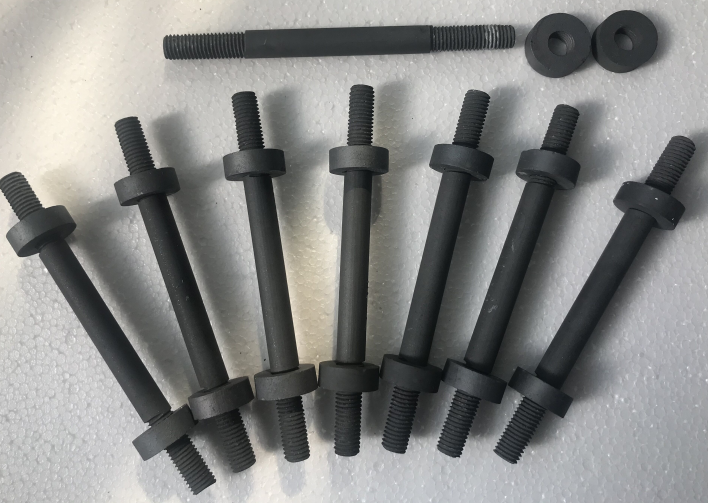


Anti corrosion
Good wear resist
Long servie life
Be made by casting
Inquiry
|
SiC (Silicon Carbide) ScrewsSilicon carbide (SiC) is a ceramic material with excellent heat resistance and chemical resistance, and has the second highest hardness after diamond and boron carbide .
It has a crystal structure similar to that of diamond, and its high hardness is maintained by strong covalent bonds, making it difficult for its mechanical strength to deteriorate even under high temperatures. For this reason, the melting point of silicon carbide exceeds 2,500°C, and it is also used as a material for channels through which molten iron flows.
【Features of SiC (Silicon Carbide) Screws】
The main features of SiC (silicon carbide) screws are heat resistance and chemical resistance.
The heat resistance allows operation at temperatures around 1500°C, and the small coefficient of linear expansion helps mitigate the impact of thermal expansion on the screws.
Chemical resistance withstands highly corrosive substances essential in semiconductor manufacturing, including "ammonia water," "hydrogen peroxide water," "hydrofluoric acid," and "SPM."
【SIC Usage】
As semiconductor devices become smaller and more advanced, the chemicals (wafer cleaning solutions, etc.) used in the cleaning process are becoming more corrosive than ever before.
Wafer processing temperatures are also becoming higher, requiring screws with higher heat resistance.
SIC screw is effective for equipment that uses these highly corrosive chemicals and in high temperature environments.
Application Examples
・Wafer Cleaning Equipment













